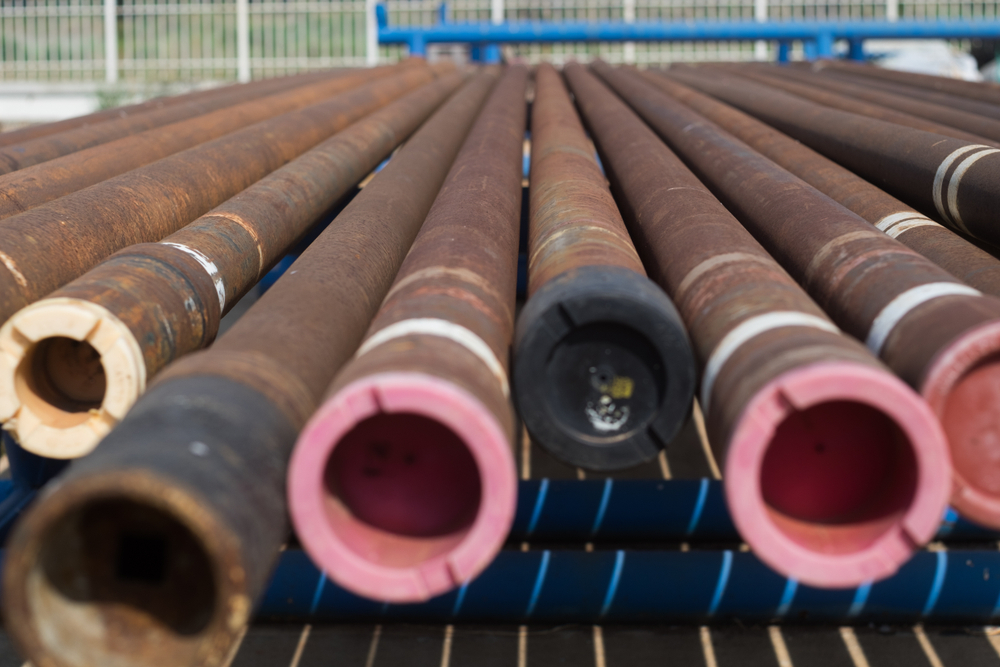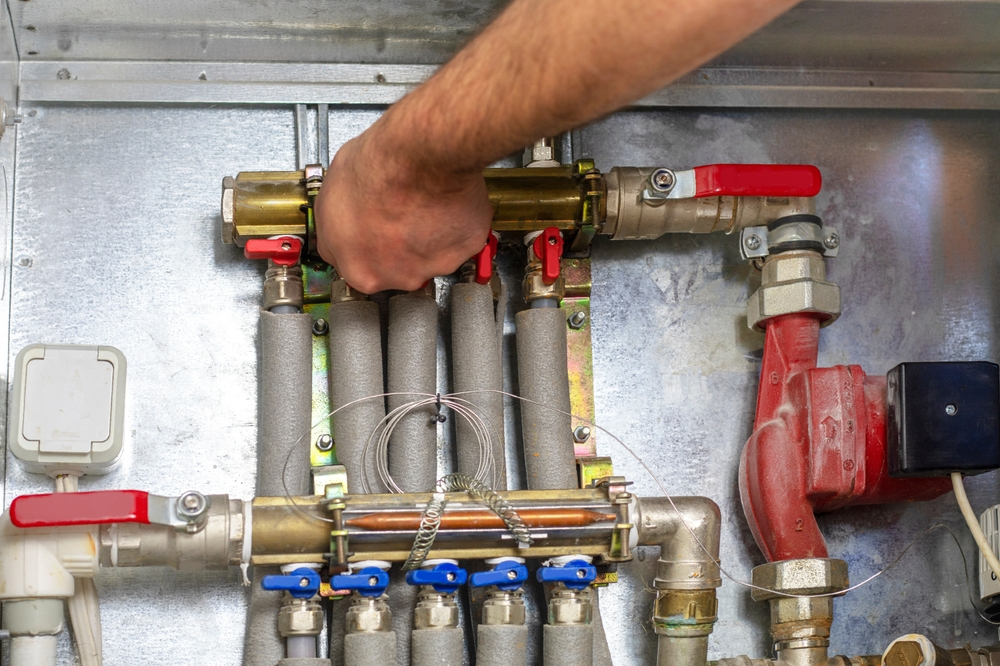The Hidden Dangers of Hard Water: Negative Effects on Plumbing Pipes and Fixtures
Hard water is a ubiquitous issue in many households, yet its detrimental effects on plumbing pipes and fixtures often go unnoticed until problems arise. Defined by its high mineral content, primarily calcium and magnesium, hard water can wreak havoc on pipes and fixtures over time. Understanding the nature of hard water and its impact is essential for homeowners to address and prevent costly plumbing issues.
Effects on Plumbing Pipes
Mineral buildup and blockages:
Hard water’s high mineral content makes it prone to leaving behind deposits as it flows through plumbing pipes. These deposits, known as scale, gradually accumulate on the interior surfaces of pipes, forming a stubborn barrier that restricts water flow. Much like cholesterol buildup in arteries, scale can gradually narrow the diameter of pipes, leading to blockages and reduced water pressure.
The process of mineral buildup begins with the dissolved minerals in hard water precipitating out of solution as water passes through the pipes. Over time, these mineral deposits accumulate, forming a hardened layer of scale that adheres to the pipe walls. As the scale thickens, it constricts the flow of water, causing plumbing fixtures to operate inefficiently and increasing the likelihood of clogs and backups.
Corrosion
In addition to impeding water flow, hard water can also accelerate the corrosion of plumbing pipes. The minerals present in hard water, particularly calcium and magnesium, react with the metal surfaces of pipes, gradually eating away at their walls. This corrosion weakens the structural integrity of the pipes, making them more susceptible to leaks, ruptures, and other forms of damage.
The corrosive effects of hard water are exacerbated by factors such as pH levels, temperature fluctuations, and the presence of dissolved gases in the water. As these variables interact with the mineral-laden water, they create an environment conducive to corrosion, hastening the deterioration of the pipes. Left unchecked, corrosion can lead to costly pipes repairs and replacements, as well as water damage to surrounding structures.

Effects on Plumbing Fixtures
Stains and discoloration
Hard water’s damaging effects extend beyond pipes to plumbing fixtures themselves. Sinks, faucets, and showerheads are frequent targets of mineral deposits, which can leave behind unsightly stains and discoloration on their surfaces. These stains, caused by the precipitation of minerals from the water, detract from the aesthetic appeal of the fixtures and can be challenging to remove.
The formation of stains and discoloration occurs as dissolved minerals in the water come into contact with the surfaces of fixtures and undergo a process known as precipitation. This process, whereby minerals transition from a dissolved state to a solid state, results in the formation of stubborn deposits that adhere to the fixture surfaces. Over time, these deposits accumulate, creating unsightly blemishes that mar the appearance of the fixtures.
Reduced water flow
Mineral buildup from hard water doesn’t just affect pipes; it can also impair the performance of plumbing fixtures. Showerheads, faucets, and aerators are particularly susceptible to the insidious effects of mineral deposits, which can accumulate within their internal components and impede water flow. This reduced flow not only diminishes the effectiveness of the fixtures but also increases water usage and utility costs.
The process of mineral buildup within plumbing fixtures begins with the deposition of dissolved minerals onto the surfaces of the fixtures. As water flows through the fixture, these minerals adhere to the internal components, gradually obstructing the flow channels and reducing water flow. The result is a decrease in water pressure and an increase in the time required to complete routine tasks such as showering and dishwashing.
Shortened lifespan of fixtures
Constant exposure to hard water can significantly shorten the lifespan of plumbing fixtures, leading to premature deterioration and failure. The relentless assault of mineral deposits gradually wears down the surfaces of fixtures, compromising their structural integrity and functionality. Without intervention, fixtures may succumb to corrosion, staining, or mechanical failure, necessitating costly repairs or replacements.
The deterioration of fixtures due to hard water is a gradual process, with each droplet of mineral-laden water contributing to the degradation of the fixture surfaces. Over time, the cumulative effects of mineral buildup, corrosion, and mechanical stress can compromise the integrity of the fixtures, leading to pipe leaks, malfunctions, or complete failure. Proper maintenance and proactive measures are essential for preserving the longevity of fixtures and minimizing the risk of costly repairs.
Impact on Household Appliances
Scale buildup
Hard water’s damaging effects extend beyond plumbing fixtures to household appliances, where they can wreak havoc on sensitive components. Dishwashers, washing machines, and water heaters are particularly vulnerable to the formation of scale—a hard, crusty residue that accumulates on heating elements and internal surfaces. This scale buildup can impair the performance and efficiency of appliances, leading to increased energy consumption and premature failure.
The formation of scale within household appliances occurs as dissolved minerals in the water are heated and precipitate out of solution, forming solid deposits on surfaces. Over time, these deposits accumulate, creating a thick layer of scale that insulates heating elements, inhibits heat transfer, and reduces the efficiency of the appliance. The result is increased energy consumption, longer cycle times, and decreased lifespan of the appliance.
Higher energy bills
In addition to impairing the performance of household appliances, hard water can also drive up energy bills. Appliances such as water heaters, dishwashers, and washing machines must work harder to overcome the insulating effects of scale buildup, resulting in increased energy consumption and higher utility costs. Furthermore, the reduced efficiency of appliances due to scale buildup may necessitate more frequent repairs or replacements, further adding to the financial burden.
The impact of hard water on energy bills is twofold: first, the increased energy consumption required to compensate for the reduced efficiency of appliances, and second, the additional costs associated with repairs and maintenance. Over time, these expenses can accumulate, significantly impacting household budgets and exacerbating the financial strain caused by hard water.

Solutions and Prevention
Water softening options
Fortunately, there are several options available for mitigating the negative effects of hard water on plumbing pipes, fixtures, and appliances. Water softening systems, such as ion exchange, reverse osmosis, and magnetic descaling devices, are designed to remove or neutralize the minerals responsible for hardness, thereby preventing scale buildup and corrosion. Each type of water softener has its unique advantages and disadvantages, allowing homeowners to choose the solution that best fits their needs and budget.
Ion exchange water softeners, for example, use resin beads to exchange sodium ions for calcium and magnesium ions, effectively softening the water. While effective at removing hardness minerals, ion exchange systems require regular maintenance and may contribute to increased sodium levels in the water. Conversely, magnetic and electronic descaling devices use magnetic fields or electrical currents to alter the crystalline structure of minerals, preventing them from adhering to surfaces and forming scale. While these devices are relatively maintenance-free, their effectiveness may vary depending on water quality and usage patterns.
Importance of regular maintenance
In addition to installing a water softening system, regular maintenance of plumbing pipes, fixtures, and appliances is essential for minimizing the detrimental effects of hard water. Flushing pipes periodically with a descaling solution can help remove existing mineral deposits and prevent the formation of scale. Similarly, cleaning fixtures and appliances regularly with vinegar or commercial descaling agents can help remove stubborn stains and maintain optimal performance.
Other preventative measures
In addition to water softening and regular maintenance, there are several other preventative measures homeowners can take to protect their plumbing system from the damaging effects of hard water. Installing a whole-house water filtration system can help remove sediment, chlorine, and other impurities from the water supply, reducing the risk of scale buildup and corrosion. Similarly, using a water conditioner or inhibitor can help neutralize the minerals in hard water, preventing them from precipitating out of solution and forming scale.
Conclusion
In conclusion, the negative effects of hard water on plumbing pipes, fixtures, and appliances are far-reaching and potentially costly. From mineral buildup and corrosion to stains and reduced water flow, hard water can wreak havoc on the health and functionality of your home’s plumbing infrastructure. By understanding the nature of hard water and implementing proactive measures to mitigate its effects, homeowners can safeguard their plumbing system against the unseen threat lurking within their pipes. Whether through water softening, regular maintenance, or other preventative measures, addressing hard water issues is essential for maintaining the longevity and performance of your home’s plumbing system and fixtures.
Plumbing Services CA
https://maps.app.goo.gl/31Yt4rhDrainzNJ4A
(279) 203-0765
https://plumbingservicesca.com/
